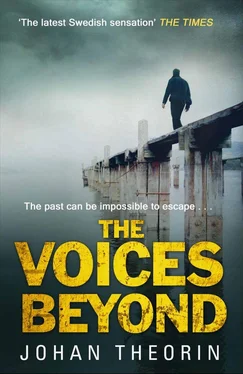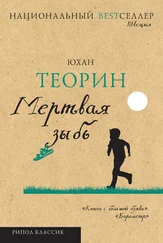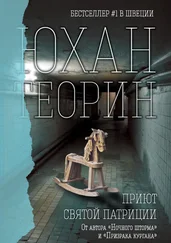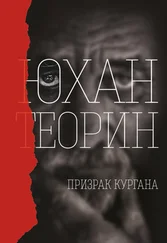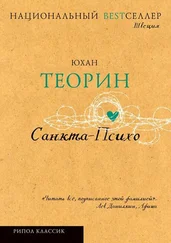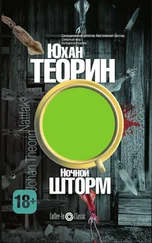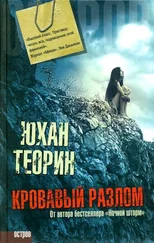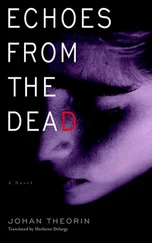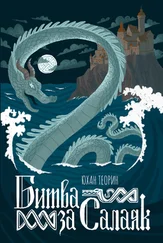Mila smiles. ‘We’ll go over there in the morning, in plenty of time before we sail.’
Aron smiles back, but he is trembling inside. He feels like the bastard son when it comes to the Kloss family. And, of course, he is a bastard, the illegitimate offspring lumbering in among the posh folk, with no idea how to behave.
But they have a lovely evening in Stockholm. They wander through the narrow streets of the Old Town, just as Aron and Sven did; they take a ferry trip around the islands and spend the last of their money on a special dinner in a restaurant. Mila coughs quite a lot during the evening, and she is very tired, but she is smiling, too.
‘Everything will be all right.’
Maybe, Aron thinks. If I get down on my knees to Veronica Kloss.
The following day, it is time to go and see her.
Kungsholmen is a little distance away from their hotel. Aron is still hesitating but, eventually, they set off, and manage to find the right house. The outer door is made of dark wood, wide and sturdy. And closed. But there is a nameplate with ‘KLOSS’ engraved on it, and a button beside it.
Aron presses the button and waits by the entry phone, with Mila beside him.
‘Yes?’
It is a woman’s voice, and Aron’s heart begins to pound.
‘Veronica?’ he says quietly. ‘Veronica Kloss?’
‘Yes?’
Aron introduces himself again. He explains, with Mila at his side, that they have come to Sweden because they need help. That he has brought proof that they are related, a snuff box that used to belong to his father, Edvard Kloss.
There isn’t a sound from the speaker.
Then something rattles up above his head. A window opens, three floors up, and a white envelope drifts down through the air. Bizarrely, it reminds Aron of Comrade Trushkin and the letters he left on the streets of Leningrad.
‘Aron Fredh’ is written neatly on the front.
Slowly, he opens the envelope. There is no letter inside, just a piece of paper with a picture on it. A picture of a forest clearing, with a digger standing among the remains of a small house. A croft. The machine has rolled straight in and crushed the walls.
Needless to say, Aron recognizes the croft.
He drops the picture and stares at the door. It remains closed. Veronica Kloss has put down the phone upstairs in her apartment, and the lock never buzzes to let them in.
Aron turns and looks at his wife. She doesn’t understand Swedish, but she knows. Something has died in her eyes; hope is gone.
She takes his arm. ‘We have to go,’ she whispers. ‘We’ll miss the boat.’
They set off, walking in silence.
Mila’s breathing is laboured by the time they reach the hotel. They collect their luggage and take a taxi to the ferry. She is very low, and her cough is worse than ever. Aron wants to cheer her up, but he doesn’t know what to say. His croft is gone. Kloss has destroyed the dream he has cherished for so long.
They manage to catch the boat. Mila is very breathless, without a scrap of colour in her face, in spite of the sun that has been shining down on Stockholm. The ferry slips away from the land, out through the archipelago, leaving Sweden behind them.
‘We’ll come back,’ Aron says.
Mila nods wearily. It is almost time for dinner, but she shakes her head and goes to bed. She seems ill; perhaps she is suffering from seasickness, even though the sea is perfectly calm.
Aron eats as quickly as possible in the only restaurant on board, then goes back down to the cabin.
Mila is asleep, her breath rattling in her chest. Aron has the dizzying feeling that he has done this before, when he travelled with Sven, who was so ill. But this is far more serious.
Two days later, they are back in Moscow. They have travelled the same way as they did on the outward journey, by train from St Petersburg. Their daughter, Paulina, is waiting for them at the Belorussky Station. Aron notices that she has changed out of her winter coat; spring has arrived in Russia.
He climbs down from the carriage with a heavy tread and helps Mila down the steps; she is exhausted. They both hug their daughter for a long time.
And so they go home, and the hospital visits begin again. And the constant battle for oxygen.
At the end of June he calls his sister again, on the line beneath the Baltic Sea, but she doesn’t answer. A nurse speaks to him instead, with that faint rushing sound in the background, as before.
‘Greta Fredh is no longer with us, I’m afraid. She’s passed away.’
Aron doesn’t understand.
‘She had a fall. She fell in her bathroom.’
After a while, the news sinks in, and he puts down the phone.
His sister is dead, and there is no hope for his wife.
It takes ten months of hospital visits and vigils before Mila’s lungs give up. She is like a drowning woman at the end, fighting and fighting, but unable to get any air.
On 20 February 1999 she finally dies. Aron and Paulina are sitting with her, but Aron has to leave the room several times during the struggle. The feeling of powerlessness is the worst thing of all.
At the beginning of May, two months after the funeral, he travels back to Sweden. He buys an old Ford in Stockholm and drives down to Öland.
Greta’s room has been cleared, but he is allowed to look at the box containing the things she left behind. She had nothing — nothing of value, at least — but he takes a few family photos of himself when he was a little boy, and of their mother, Astrid.
The door of the room next to Greta’s is standing open; the nameplate says ‘WALL’. Aron looks inside. Two men are sitting there; one is older than Aron, the other is younger. But they bear a strong resemblance to one another; he assumes they are family.
‘Did you know the lady next door?’ he asks.
‘Who wants to know?’
‘Fredh. Aron Fredh.’
‘So you and Greta were related,’ the older man says. ‘She had a fall.’
He puts a little too much stress on the last word, and Aron pricks up his ears.
‘Yes,’ he says. ‘I’m her brother.’
‘My name is Wall,’ the older man says. ‘Ulf Wall... This is my son, Einar.’
Aron nods.
‘I’m related to the Kloss family as well,’ he says.
He notices that the younger man, Einar Wall, frowns slightly at the mention of that name, so he takes a step into the room. Purposefully, like a soldier.
‘Kent is dead,’ Veronica Kloss said.
Aron nodded. ‘So is Greta. And Mila.’
Veronica stared at him in the glow of the paraffin lamps, and he stared right back.
‘Sit down,’ he said.
She hesitated briefly, then sat down on the empty chair next to her youngest son. He looked at her and she opened her mouth to say something to him, but Aron didn’t want to hear it.
‘Right,’ he said loudly. ‘Let’s begin.’
This was the last interrogation he and Vlad would ever conduct, he knew that. It was important to do it properly.
There was no desk in the mill, but he had brought a pen and paper and found a wooden box to lean on. He pushed the box over to Veronica.
‘Take the pen.’
She looked at him for a long time, but took it eventually.
‘And some paper.’
She took a sheet of paper.
Aron raised the assault rifle. ‘Start writing. I want you to admit that you killed my sister in the residential home last summer, after I told you we were related. And I want you to explain how you did it.’
The pen was poised over the paper.
‘And then?’ Veronica said.
‘When you’ve finished, I’ll let the boy go.’
‘And me?’
He lowered the rifle so that it was pointing at the makeshift desk.
‘Just write.’
Читать дальше
